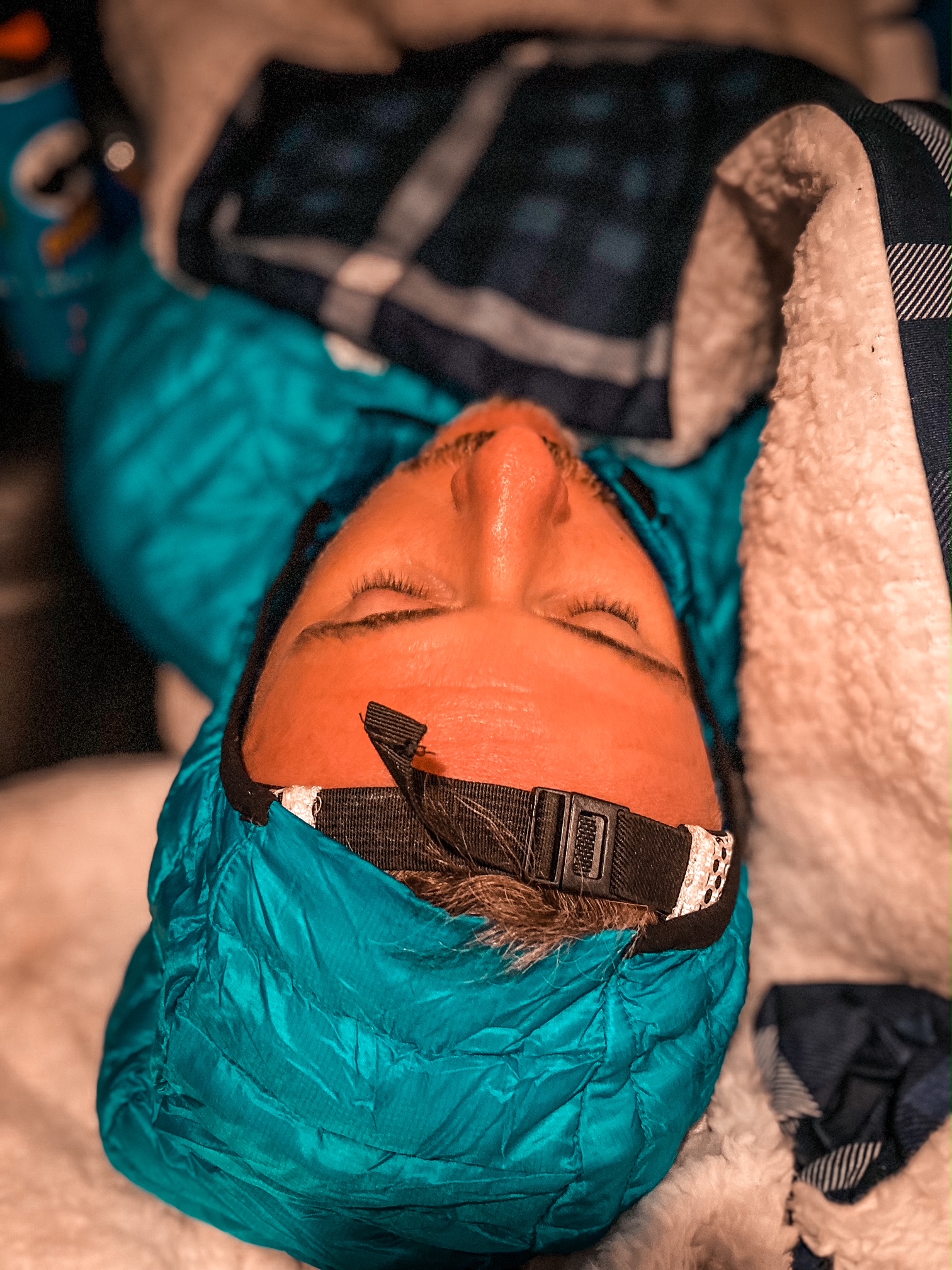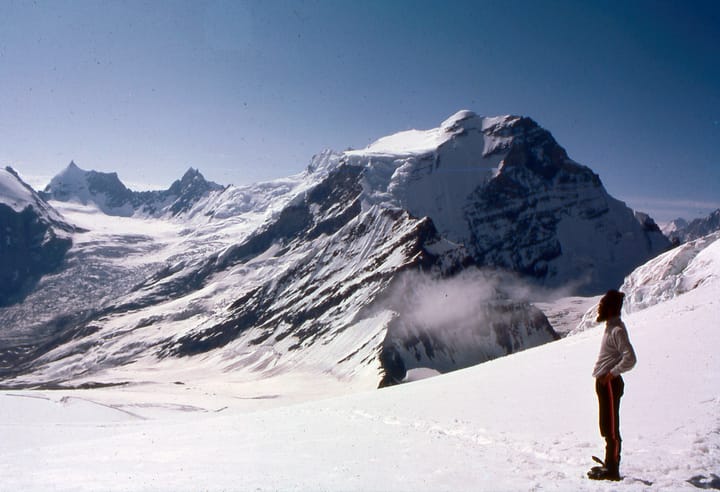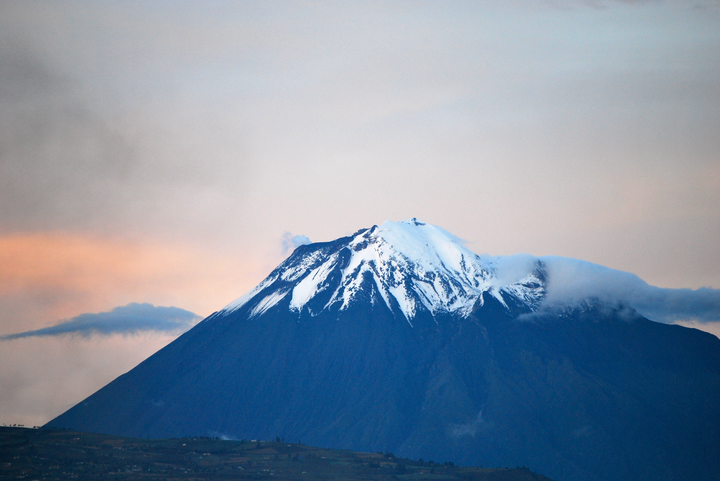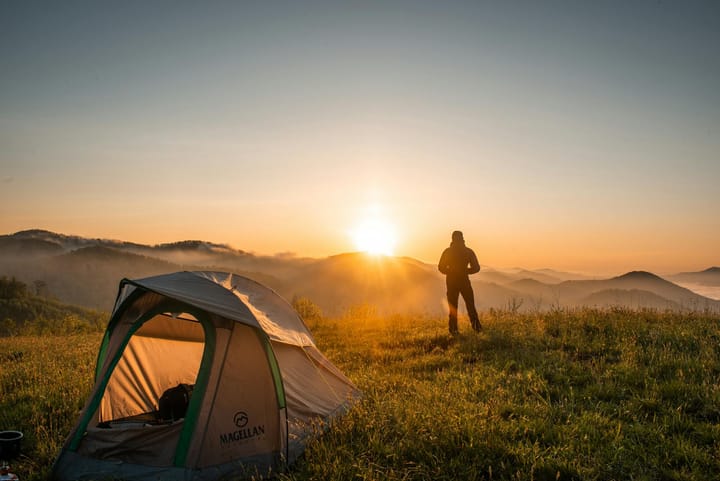The 240 Mile Comeback: A Tale of Two Moabs
Two years after his delirious finish, the Moab 240 is the perfect arena for this ultramarathoner’s comeback. Scott Jenkins sets a new British record in one of the world’s toughest races.

It’s 2019 and ultrarunner Scott Jenkins has just completed 224 miles out of the 240-mile race which follows the Colorado River as it carves its way through Utah. He’s cruising in 18th place and there are only 16 miles to go. Everything is going to plan. Sleeping now would only prolong the agony. But that’s when the wheels fall off. Scott’s running stride devolves from seasoned amateur to hungry zombie. He doesn’t know where he is and he’s seeing things that aren’t there. Scott finishes (becoming the first Welshman to do so), but his sleep-deprived, feverish spell costs him 10 hours and almost 20 spots on the race ladder.
Two years removed from his delirious finish, Jenkins returns to Moab - the perfect arena for this ultramarathoner’s comeback - and sets a new British record in one of the world’s toughest races. Listen to Jenkins recount his hallucinatory and gut-wrenching 2019 race.
"There’s a comeback story in all of us."
So what does a comeback really mean? Read below in Scott's own words:
The definition states that it is reflective of a return by a well-known person, especially an entertainer or sports player, to the activity in which they have formerly been successful. This very definition in itself suggests a comeback for the worthy, the well-known, and the successful. However, don’t we all have our own personal comeback story? Whether it’s sports-related, illness, family reunions, business, love stories…there’s a comeback story in all of us and it should not only be a phrase favored, used, or applied to just superstars.

My comeback story relates to that of the sporting endeavor, whilst it may not be a professional one that doesn’t make it any less meaningful to me or the charity I support - Operation Smile - which helps children with cleft conditions. I’m an amateur ultra runner whose hobby outside of a corporate job for Johnson and Johnson, is to run extremely long distances whilst raising money for charity. Over the past 11 years I have undertaken a lot of ultra-endurance endeavors to raise money for charities close to my heart, none more so than Operation Smile. These challenges have offered me the opportunity to experience the world and make memories with friends and family (new and old) and I’ll always be thankful for that.
The Grand Slam
Each year, I would set myself goals to try and push myself and my body further for charity, 2021 was prized to be my most exciting year of running yet. Run the Cocodona 250 mile run in Arizona (May), run Badwater 135 in Death Valley (July), run Bigfoot 200 in Washington (August), run Tahoe 200 (September), and run Moab 240 in Utah (October). It felt ambitious. It scared me. It would push me to my limits. But it would do good. It would hopefully inspire. It would hopefully raise money. It would hopefully raise awareness.
I’m no professional athlete, just a regular guy, who works 9-5 in a job he loves and uses his spare time to train and drag his wife to ultra running events. However, I am proud of what I have achieved to date in my running.
Now with that rather ambitious goal set, plans slowly started to disintegrate as 2021 progressed. Cocodona fell off the radar as COVID travel restrictions meant I couldn’t get to the race. And Badwater very much looked to be going in a similar fashion as the restrictions continued. Thankfully though, two weeks prior to the leave date, I was granted special travel dispensation by the US Olympic committee due to the fact that Badwater was an invite-only race. To be granted this, I felt very privileged and lucky to be afforded such a unique opportunity and represent my country at these races. I was highly motivated and I had continued to train hard and felt ready to tackle the 135 miles, 18,000 feet of elevation, and 52 degrees of summer heat in the desert.
"My 11-year dream was nearly brought to an abrupt end at a mere 50 miles in."
I set off in the 9:30 pm wave start at Badwater Basin and was instantly hit by the unusual wind wiping around us. To put it into context, the heat felt like that of the oven door being opened in my face and then being continually blown in my face like a hairdryer air stream. It was energy-sapping. Then there was the unusual humidity that hit me hard and played havoc with my digestive system. I couldn’t keep the calories down and I was slowing. Slowing way more than was optimal to do well in such a historic and dream race for me. It was hurting me both mentally and emotionally. I just kept thinking “put one foot in front of the other.”

Now within this race, there are three key cutoffs. The first one was the most aggressive, which was to cover the first 50 miles in 12.5 hours. My historic race performances suggested that this was more than achievable but this is one of the most brutal races in one of the most inhospitable places on Earth. Every step needed to be earned. As a direct result, I found myself battling to make the cutoff and make it I did, by one minute, one minute to spare. My 11-year dream was nearly brought to an abrupt end at a mere 50 miles in. If it was not for my best friend, Chris, encouraging me to sprint up a 10% gradient to meet the cutoff ahead of schedule, it very truly would have been over at the first big hurdle.
Now, I’m glad to say, I recovered from that and finished 53rd and covered the 135 miles in 42 hours 42 minutes but this as you will have guessed from the title is not the comeback, it is merely a blip in the road. It’s an achievement I’m proud of but one I think I could have performed better at.
Next up was Bigfoot 200, a 210-mile race through the cascade mountains with 43,000 feet of elevation gain and surrounded by imposing dense dark forests, hence the race name of Bigfoot. You could be forgiven for believing Sasquatch would reside in such a place.
Now coming from Wales and living in London, let’s say I was slightly concerned about bears and mountain lions because let’s be honest the U.K. doesn’t really do dangerous animals unless you count foxes and cows. At the start line I felt good but realistic about the task ahead, the temperature was predicted to be a sweltering 40C but I was hopeful my recent Badwater experience (three weeks prior) would see me well on the first day alongside my treadmill heated hikes with a 10 kg weighted vest prescribed by my coach, Marcus Smith of Innerfight.

However, 20 miles in and I began to struggle with the mixture of heat and altitude. The distance between aid stations and lack of streams for water supply saw me get severely dehydrated and slow to a power walking cadence. Not my finest moment but determined not to give up, I plowed on to the 40 mile aid station convinced I had rhabdomyolysis for the second time.
My once strong mental fortitude had started to betray me. I rested, I ate and I drank in the hope I could muster enough energy to continue to the next aid station 20 miles away. The rest did me good and with a few choice words from Marcus and my wife Abby over text, I sprung into action and started to be able to run at pace. I felt ecstatic for a while but those moments were fleeting and by mile 60 my IT Band tightened to the point I could no longer run.
However, my mental fortitude was back with full vengeance and I knew I would not quit this race. I was lucky to even be here in the United States, let alone being able to take part in many people's dream race. I carried on subdued to a slow walk but it was forward motion nonetheless. I found river crossings helped numb the pain and gave me the ability to move for six to eight miles at a time.
Due to the slow nature of my now walking-ultra, I was starting to run out of time for sleep and the cutoff times for the race were starting to catch up to me.
Determined to refresh and give it my all, I got to mile 160 and left the aid station after 30 minutes. However, those 30 minutes proved to be insufficient and after leaving the aid station, I got confused and ended back at the aid station, sat down, fell asleep, and got timed out. The dream was over. I came up short. 50 miles short and now my dream 2021 race season was over. I was devastated. I can’t think of a time when I gave my all to a race and left with a DNF. I cried. I’m not ashamed to say I cried because I poured everything into it and came up short.
I felt I had failed people, failed Operation Smile, failed my coach, failed myself, failed my friends and family.
Now, this may sound dramatic to any non-runners reading this especially after everything we have been through in the last 18 months but for me, this was my sole focus and purpose that got me through the harsh isolation of COVID and now I had failed. I’d left nothing on the field. The tank was empty.
I returned home, worried about whether my IT Band would be healed in time for Tahoe 200. I was still going to give it a go but feared another painful and emotional DNF.
However, I had set a goal and I was determined I would meet that goal head-on.

I continued to recover and receive regular physio to try and rehabilitate my IT band. However, at the beginning of September, a huge wildfire hit the Tahoe region of California and the race was rightly canceled as a result. Of course, I was disappointed but also very aware of the much larger reality, that many families and businesses would lose their homes and incomes in the region as a result of the fire, so I was pleased the race organisation made the right decision to postpone the event.
This left one large huge race, the Moab 240 Ultramarathon as the perfect arena for a comeback. The last race to really try and live up to my full race/running potential. The last race to put the last 18 months of training with coach Marcus to good use for a good outcome.
The Tahoe race cancellation, in hindsight, was probably a blessing in disguise as it allowed my IT band to recover well ahead of the Moab race. I refocused, I strategised, I honed my sights on doing well at Moab and not only righting the mistakes of the Bigfoot race but also that of the Moab 2019 race, where previously the wheels fell off in the last 16 miles, which cost me 10 hours in race time and saw me drop from 18th to 35th due to sleep deprivation.
The Moab 240
Moab for those that don’t know is a 240-mile circular loop around the Utah canyonlands, mountains, and desert with 30,000 feet of elevation gain, steep climbs, hot days, and freezing evening temperatures.
It’s no joke when Runner's World magazine dubbed this as one of the hardest foot races in the world alongside Badwater, they weren’t wrong. I can testify to that for sure!
"I can achieve more than I think I can and so can you."
I was ready though. I had a desire to do well and I was dialed in physically, mentally, and emotionally. However things took an unexpected turn the Thursday before I was due to fly, I found myself in West Middlesex hospital with swollen glands and struggling to breathe. No one knew what was wrong with me. I spent half a day in the hospital and was given some antibiotics to try and reduce the swelling. It helped but only a bit. It became clear I had some sort of glandular fever but had taken a reaction to the first round of antibiotics I was given. This was restricting my breathing. I made the decision to still fly to the USA and try and recoup and recover in hope of being fit for race day one week later.
I tried to remain positive and upbeat but it was hard. I felt impending doom that this last chance of redemption and comeback might be over before it even started. However, I rested, I preserved and took care of myself more than I ever have and by race day I felt 90% fit and thought, “Let’s go!”
The first 17 miles were tough, my chest tightened due to the altitude and temperature changes and as the day progressed, much like Badwater, I struggled to keep the calories down. Yet something was different this time. I felt optimistic. I felt inspired by those around me. I felt I had the strength to outweigh the negatives and slowly and surely as the race went on I got stronger. This was most likely helped through the friendships I forged on the trails with the other runners and through my pacer, Jason Wooden who joined me for the last 38 miles.
I felt with every step I was writing wrongs and gaining stronger mental fortitude than I had ever experienced in a race. As a result, I started to climb the race ladder battling my way through the field and inhospitable desert and mountain terrain. At the halfway point I was six hours ahead of my 2019 time for the same race. I knew at that point if I could get my sleep and nutrition right then I could fight to do something special at the race. With that in mind, strategic sleep really aided my pace, and actually, by going slowly to sleep, it helped me go faster overall in the race.
By the time the sun rose high over Castle Rock and Porcupine Rim I felt like I was flying. I zoomed past the spot where my race had fallen apart in 2019, the demons were expelled. It’s just another nondescript rock on the trail on just another sunny running day in the mountains.
As the miles began to tick down I finally got a glimpse of the mighty Colorado River, the river I last saw some 236 miles ago. The pavement beckoned me home, like the last lap around a track, or the landing lights on a runway guiding a pilot home, by the time I hit the road surface I knew the plan and so did my pacer Jason. Run as fast as I can, run like never before, flat out for four miles.
I sprinted my heart out and was breathing hard, the type of exhausted breath that only comes from running that far. I glanced at my watch as the pace felt fast, 9.30 min/miles, not impressive if you are a 5k runner but not bad for an amateur runner who’s just run 238 miles. I turned the corner and the entrance into the home straight and final bend, 100 m to complete one of the world’s toughest races but also to complete an even bigger comeback and get redemption. And then it happened, I crossed the line with my Welsh flag flying high, 16 hours, yes 16 hours quicker than 2019. The comeback was complete, the Moab 240 ultramarathon was in the books with a 15th place finish out of 227 runners.

Then something wonderful happened, I was told I’d set a new British course record by running the 240 miles in 77 hours and 2 minutes and 44 seconds (beating the previous British record by 25 minutes). I couldn’t believe it. But most importantly I’d raised enough money to help 15 children smile for the first time. When I started this race, did I think this was possible?
Simply put - no. I know I’ll never be a professional ultrarunner but this I do know, I can achieve more than I think I can and so can you. I was willing to learn from my mistakes and failures to try and push myself to new levels.
Find Your Why
So I guess why I tell you this story is not to be self-indulgent.
I tell you this story because it demonstrates that a comeback can happen for all of us and not just the superstars.
A comeback can happen on momentous occasions or in small daily wins in any walk of life.
A comeback can be in any situation or circumstance, not just sport.
I tell you this story because what I have found is that by learning from our mistakes we can achieve positive outcomes. Learning to apply mental fortitude and taking help, advice, inspiration, and support from those around us can help us to reach new levels.
If we can do the above and find our WHY we do what we do, then we can all achieve something that we never thought was in the realms of possibility.
So give it a try, set yourself a challenge that stretches your abilities and limits.
The journey and adventure along the way will be fun and educational, you may or may not get the outcome you want in the end. However that’s the very essence of a challenge, if a positive outcome was guaranteed, then it wouldn’t even be a challenge in the first place.
Read more stories about Scott Jenkins: For the Lives of Others; Ultra Running Through Hell and Back
Keep up with Scott Jenkins on social media:
Facebook: @thejenkobros
Instagram:@scottjjenkins





Comments ()